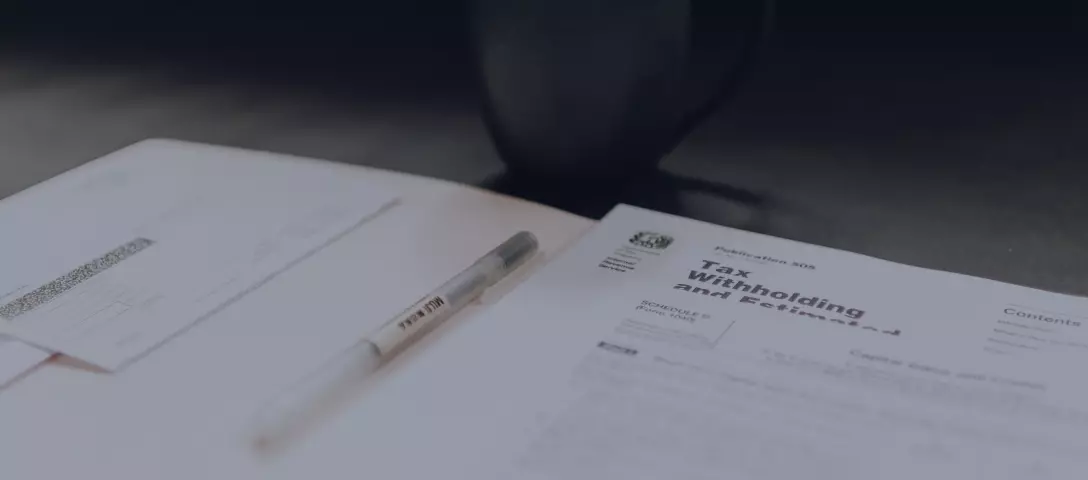Thus, according to the Investigative Committee, the number of criminal cases for tax crimes has increased by 150% in 10 years. Let's talk about how the government is implementing new measures to suppress tax schemes, and what toughening has happened over the past year.
The main changes for 2021
In 2021, the Federal Tax Service announced a number of legislative changes to strengthen tax control. Thus, from July 1 the power of inspections to annul declarations was expanded. The document may be declared invalid for several reasons:
- in the absence of authority to sign;
- in case of inaccurate information about the person who signed the declaration;
- In the case of disqualification of the signatory.
The latter applies to persons who are disqualified from holding managerial positions as an administrative punishment.
Also, from July 1 inspections will be more likely to be able to conduct repeat audits when VAT is claimed for refund and when the amount of tax to be paid is reduced. In such a case the subject of an on-site tax audit is the correctness of calculation of mandatory payments on the basis of a revised tax declaration with a reduction of the previously calculated tax amount.
In March 2021, the Federal Tax Service published a letter on the application of Article 54.1 of the Tax Code. The Service systematized the practice of application of this norm which limits the freedom of taxpayers in tax planning and worked out recommendations for business to reduce tax risks.
The letter describes the mechanism of tax reconstruction - a tool with which companies may take into account the cost and apply a VAT deduction, even if the inspectorate determines that the transaction was not performed by the person named in the documents. The Federal Tax Service has also summarized scattered recommendations for conducting the due diligence procedure.
Plans of the Federal Tax Service: what industries are at risk
The Federal Tax Service control department is planning to implement projects to reduce the number of tax evasion schemes by the end of 2021. To this end, will develop cooperation with the Federal Customs Service to strengthen control over the movement of goods across the border and the payment of customs VAT. Cooperation between the services will be carried out mainly in the analytical area - by synchronizing databases on imported goods, their value and parties to cross-border transactions. The Federal Tax Service's 2021 work plan pays special attention to controlling tax collection in the trucking industry.
By the end of 2021, it is planned to introduce additional analysis tools into the AIS "Tax-3". With the help of the new software, FTS expects to improve the quality of automated control over the completeness of revenue reflection. It is expected that all the functionality available in AIS "Tax-3" will be used by 2024.
In addition, the pretrial settlement department will introduce the "Tax Disputes" software to increase the efficiency of work with taxpayers.
The Federal Tax Service is actively developing pre-inspection analysis. On a quarterly basis, control and analytical work on the application of the provisions of the tax code on interdependent persons is carried out, and control over the collection of VAT into the budget is carried out continuously thanks to the ASC system "VAT-2".
The desire for maximum automation of tax control is associated with the plans of the Federal Tax Service to reduce the total number of tax audits in favor of encouraging taxpayers to pay additional taxes voluntarily.
Thus, according to the Federal Tax Service in 2020, 50% of all additional tax charges were received from the voluntary clarification of tax liabilities by taxpayers on the recommendations of the tax authorities which have identified arrears on the results of control and analytical work.
In some regions of Russia, the share of revenues from voluntary clarification exceeds the national average. For example, in the Kaluga region in 83% of cases additional tax payments to the budget were made not on the basis of audit results, but through voluntary clarification. In Krasnodar region the share is 69%.
Five trends important for business to know about
- The active work of the Federal Tax Service in consolidating data on taxpayers and their transactions minimizes the likelihood that a tax scheme or offence will not be detected.
- Field tax audits in only 1% of cases may not result in additional charges; in 99% of cases an audit will reveal an underpayment.
To avoid this, we advise you to exercise due diligence in selecting counterparties, avoid risky tax planning models, conduct tax due diligence yourself and follow the recommendations of the tax authorities to voluntarily clarify tax liabilities if problematic counterparties were still involved in business.
- Increase the frequency and scope of interagency and international cooperation.
It is less likely that the tax authorities will not find out about controlled foreign companies, about accounts opened in foreign banks and other financial institutions, about the real beneficiaries of foreign structures. We recommend that you submit the statutory notifications to the tax authorities in a timely manner to avoid penalties.
- Improve the understanding of the tax authorities of cross-border transactions, financial instruments and pricing methods.
Habitual tax planning models, forms of calculation and approaches to structuring of groups of companies, which are traditionally used to minimize the tax base, are losing their relevance. Current trends in judicial practice in tax disputes should be monitored and timely abandonment of tools that courts find in violation of the la
- The global trend to whitewash the tax base.
The development of bilateral exchange between states and support of initiatives of international organizations, such as the OECD, makes it unprofitable to use low-tax jurisdictions. If commercial necessity nevertheless compels to introduce foreign elements into the corporate structure, it is necessary to responsibly confirm the reality of foreign companies (confirm substance) and delegate to them the essential business functions.
Popular
-
31.10.2023
-
03.05.2023
-
18.04.2024
-
13.03.2023
-
27.02.2023


